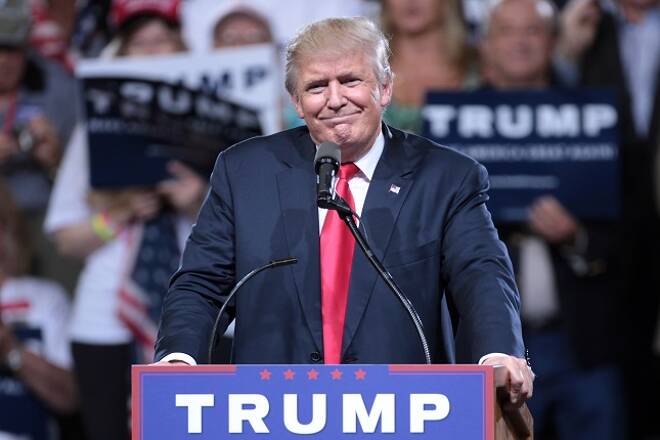Advertisement
Advertisement
Geopolitical Risk Returns to Center Stage
By:
Have the global financial markets been sleepwalking into what could be a calamity of events that could topple even the most bullish of investors?
It was a bruising start to the week for the global financial markets.
The recent upward momentum across the global equity markets had been largely hinged on hopes of a historic U.S – China trade agreement.
Tweets over the weekend had given hopes to an imminent agreement, ahead of trade talks scheduled to resume in Washington on Wednesday.
Overnight on Sunday, however, there was an altogether different tone being relayed from the U.S President’s Twitter account…
In what the U.S President may consider a part of his “dealmanship”, Trump sent out 2 tweets that shook the global financial markets from the getgo in the early hours…
At the time of writing, the CSI300 was down by 5.81%, with the Hang Seng down by 3.18%. For the Dow futures, a 476 point drop may seem palatable, though things could deteriorate rapidly from there…
The talk of a hike on existing tariffed goods from 10% to 25% was less of a blow to economic prospects. It did, however, materially impact on the likelihood of talks delivering a successful outcome this week.
While the first tweet was perhaps enough to send the markets into a tailspin, the 2nd tweet will be considered a blow to the global economic outlook…
Trump has also threatened to impose tariffs on an additional $325bn worth of goods from China. That should cover all goods from China…
A sense of calm had enshrouded the financial markets in recent weeks. Corporate earnings have been largely positive. The FED has refrained from spooking the markets with talk of rate hikes and economic indicators appear to have suggested a bottoming out.
Back into the unknown
It remains to be seen whether the latest threats are just threats to get China across the line or an omen of what’s to come…
What the latest tweets do suggest is that similar heavy-handedness may need to be expected once the U.S puts the EU in the spotlight.
Attacking trade with the world’s largest economies and leaving trade negotiations to extend for a prolonged period of time, during which time punitive tariffs are in place, is never a good thing.
What Else Could Go Wrong?
So, with the road to trade utopia hitting a speedbump, geopolitical risk is on the rise once more.
We’ve seen the North Koreans test short-range missiles and the U.S send armed forces to the Middle East.
Neither side has yet to suggest a war of any sort, but U.S – Iran relations have deteriorated in recent weeks. This was largely triggered by the U.S designation of Iran’s revolutionary guards as a terrorist group.
While not a threat to world peace, there’s also the imploding UK government to consider. The world’s 5th largest economy appears to be hurtling towards a no deal Brexit. That is assuming that the Tories remain in power until Brexit Day…
Another disruption to trade, particularly for the likes of Germany would be another blow. The scaremongerers have done their best to paint a picture of doom and gloom. The UK Parliament seems to be unfazed by it all, however.
The Domino Effect
There’s certainly plenty of geopolitical risks to consider. With the global equity markets sitting at elevated levels, it’s a long way down…
Could the markets suffer from a domino effect? It’s not completely unimaginable…
The markets could experience the collapse of U.S – China trade talks. Even more likely, would be a shift in policy on North Korea. Throw in an Iranian revolutionary guard attack on U.S interests and a disorderly Brexit and that should do it…
We have heard the U.S President attempt to strong arm the FED into cutting interest rates. That would have been a boon for riskier assets. The latest move could ultimately deliver quite the opposite.
It’s all eyes on the Oval Office later today. Will China cancel talks or, will the U.S President send a more diplomatic tweet later in the day?
About the Author
Bob Masonauthor
With over 28 years of experience in the financial industry, Bob has worked with various global rating agencies and multinational banks. Currently he is covering currencies, commodities, alternative asset classes and global equities, focusing mostly on European and Asian markets.
Advertisement
